It’s 2007, and the U.S. Presidential Election is fast approaching.
St. Petersburg Times bureau chief Bill Adair is deliberating innovative ways to cover the upcoming political frenzy.
During previous political campaigns, Adair has been a self-described “passive co-conspirator…of passing along inaccurate information”. Therefore, being driven partially by guilt, Adair sketches plans for a political fact-checking platform with a highly structured rating system.
Politifact and the Truth-O-Meter are born.
It’s 2018, and President Donald Trump has made at least 5601 false or misleading claims in 601 days since assuming office.
Over a decade since Politifact was launched, its purpose and function remains as prevalent and critical as ever.
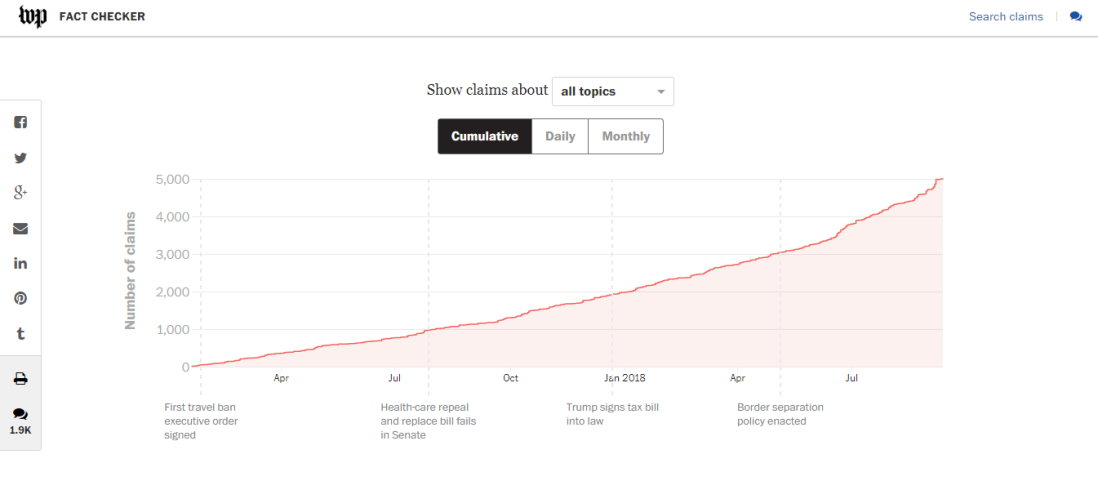
Political fact-checking is certainly not a new phenomenon. The more-trivial debunking website Snopes was founded in 1995 whereas the non-profit organisation FactCheck.org, which aims to “reduce the level of deception and confusion in U.S. politics”, was created in 2003. However, it was the innovation of Adair’s Truth-O-Meter which helped shape the landscape of political fact-checking across the world.
In fact, over 149 fact-checking organisations currently exist worldwide, with the majority using a similar rating system. Some of these include Australia’s ABC & RMIT Fact Check, Italy’s Pagella Politica, and Iran’s FactNameh, and riskier projects run in tougher political climates such as Egypt’s Morsi Meter and Turkey’s Dogruluk Payi.
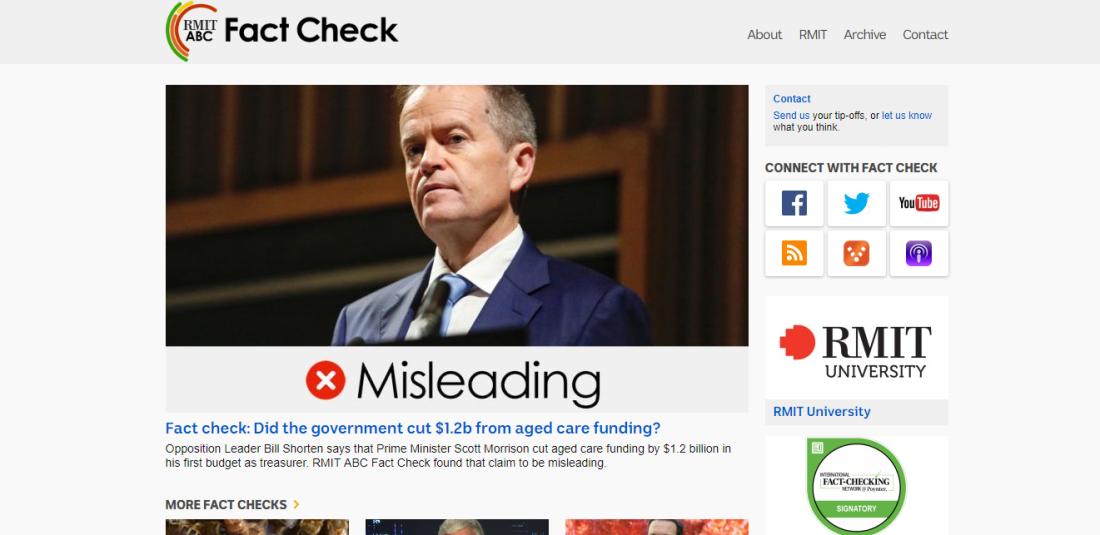
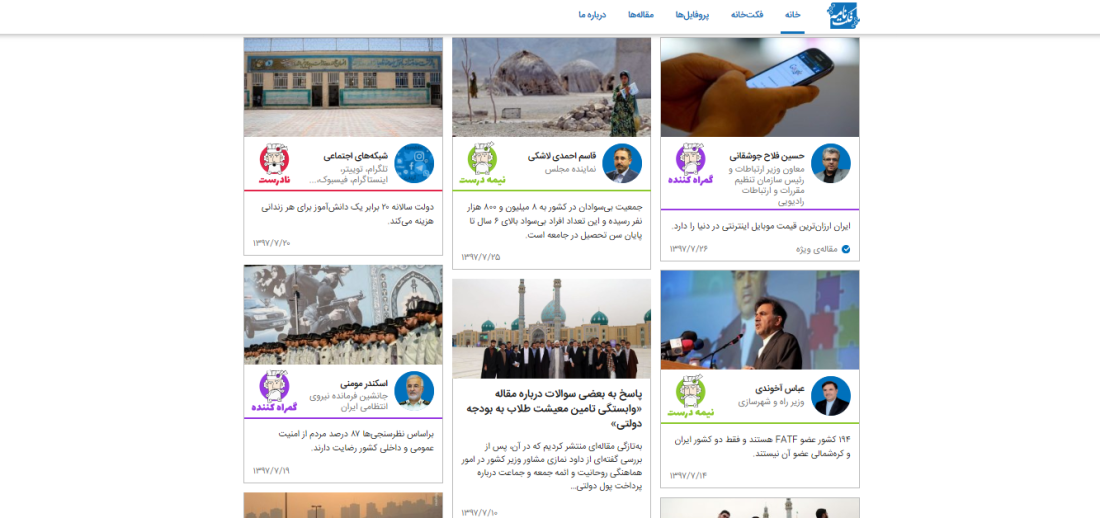
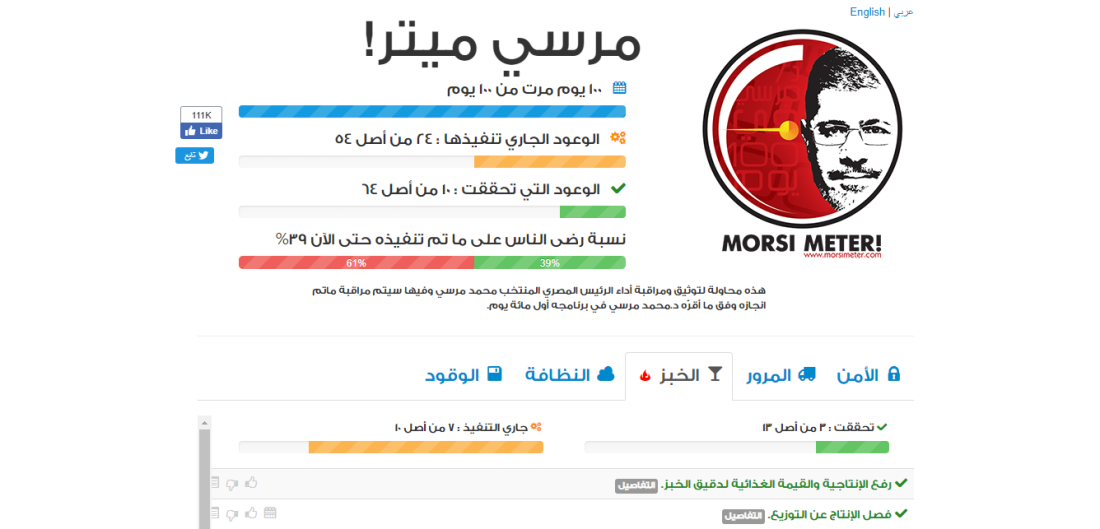
With ratings ranging from True to Pants on Fire, the Truth-O-Meter provides an easy and comprehensive summary of the facts and falsehoods rooted in the statements of influential political actors. It can be asserted that the claims made by Politifact maintain the highest possible level of accuracy, as all fact-checks involve an extensive process in which the collaborative efforts of experienced journalists results in a thoroughly researched conclusion.
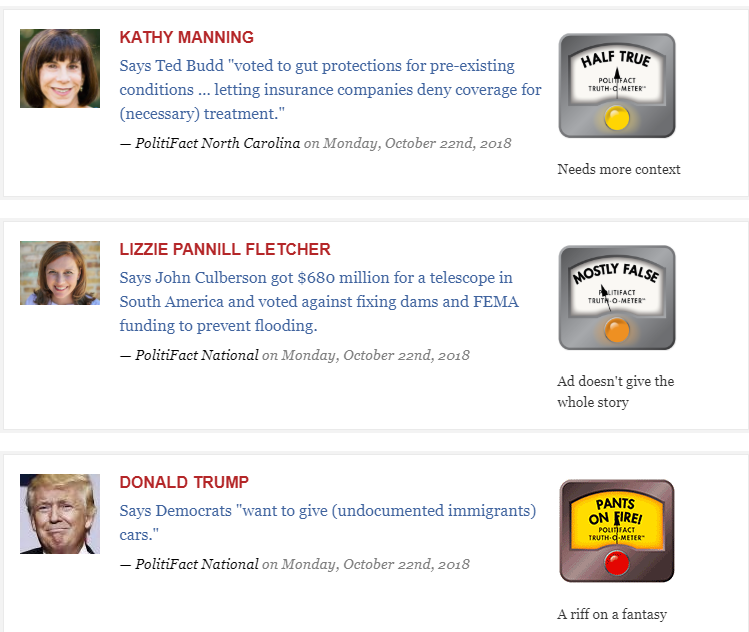
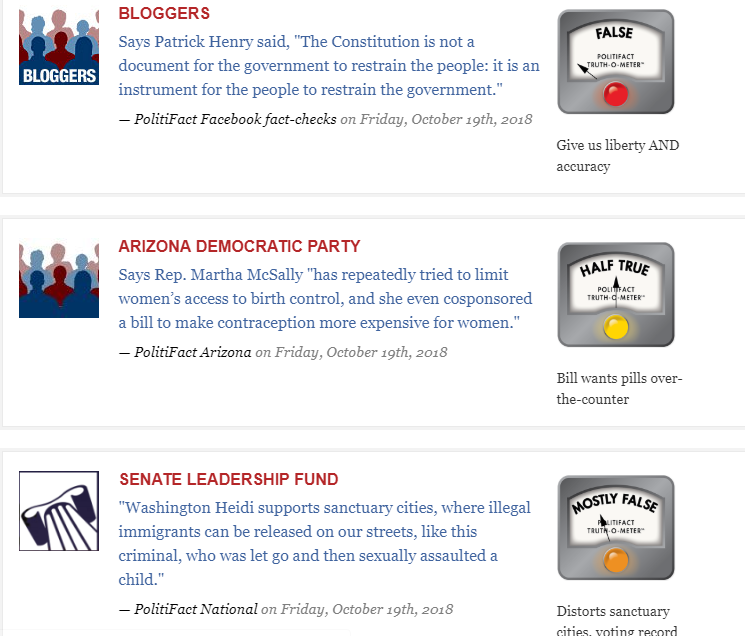
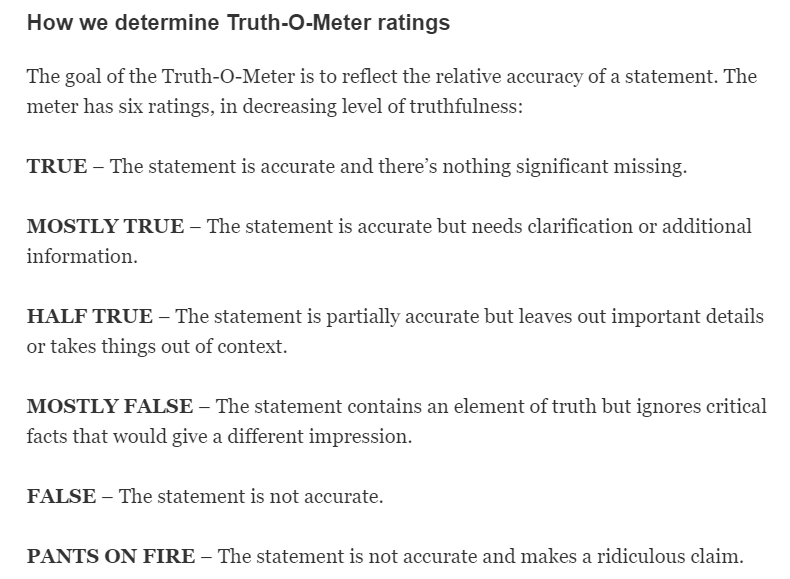
So why is fact-checking so important in the current political climate?
Ultimately, the rapid spread of mistruth is a great threat to the core values of democracy. The communication of accurate information is critical for individual citizens to form comprehensive opinions which guide the way they participate in the political realm. To feed the public false or misleading information is to do them the utmost disservice. Unfortunately, if Trump is any indicator, the inaccurate claims made by political actors worldwide are only increasing.
This is why journalistic practices are more important now than ever before. It is imperative that those in power are held accountable, and that the public are presented objective truths within a forum that encourages open discussion and debate. Organisations such as Politifact, FactChecker.org and The Washington Post Fact Checker are not only innovative because they provide a unique technological platform for readers to receive information, but also because they service important social needs such as the public’s right to the truth.
Despite the important role fact-checking organisations play, they certainly do not operate without opposition. Adair, who now heads The Duke Tech and Check Cooperative project to automate fact-checking, recognises that in our “polarized environment, the [Truth-O-Meter] is not reaching everyone, and not reaching conservatives in particular”. Regardless of best efforts to portray fact-checking as free of political bias, a 2017 Duke Reporters’ Lab Study found that a partisan divide over the legitimacy of fact-checking exists and potentially causes further tension within the political climate.
It is therefore critical for journalists to continue adapting with the transforming political climate while still thriving to hold powerful political actors to account. Further innovations are already in the works, with ground-breaking partnerships between fact-checking organisations and corporations such as Google and Facebook, as well as technological developments such as Truth Goggles.
As the new era of fact-checking emerges, journalists must continue to hold true the values of integrity, objectivity and responsibility to the public, and provide accurate accounts of the truth in innovative and experimental ways.
